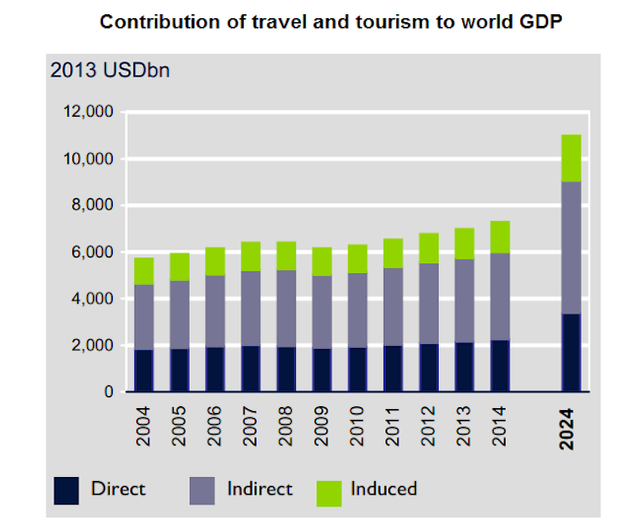Travel Reviews are broken, can Blockchain save them?


Travel Reviews are broken, can Blockchain save them?@Timsaid
We rely on the opinions of our peers to make informed decisions. This holds true in our personal lives, and it extends to our social selves, creating a strong reliance on word-of-mouth advertising and online reviews.
Businesses caught onto this quirk of human nature and have started taking advantage of it. The internet made it easier than ever to push fake news or release biased opinions to sway consumers in a more profitable direction.
Censored and fake reviews seem harmless enough when it comes to trinkets in online stores. But when you're planning a vacation or looking for a lush travel destination, there's a lot more at stake than pocket change.
Travelers spend thousands of dollars on a single trip. And naturally, they want the best experience possible. Most turn to travel review sites such as TripAdvisor or Yelp when looking for points of interest or places to eat.
But with the increasing centralization of sites like these, those reviews have become unreliable at best, and outright lies at worst.
Many of the problems with the travel reviews industry can be addressed by taking a fresh look at the system from the ground-up. Decentralizing these services, for example, could eliminate many of the trust and reliability issues, all thanks to blockchain technology.
Traveling for Profit
Worldwide travel, tourism, and hospitality is a multi-trillion dollar industry. Its largest sub-sectors include accommodations, air travel, and food -- three essentials that make up over 45% of the industry's profits.
In a 2013 study released by the World Travel & Tourism Council, tourism in the U.S. generated more than 5.6 million jobs and $448 billion in GDP. To put that in perspective, travel and tourism brought in more earnings than the insurance or food and beverage industries.
These numbers have grown significantly in recent years. In 2016, travel and tourism in the U.S. generated $1.5 trillion in economic output, supporting over 7.6 million jobs. These numbers are expected to rise sharply over the next six years.
Source: World Travel & Tourism Council via Market Realist
Our tendency to prioritize peer opinions means that the deciding factor in where to stay, which airline to fly, and which restaurants to favor often comes down to online reviews. This gives popular review sites like TripAdvisor and Yelp a virtual monopoly on where people spend their money.
Travel is a big business, and few of the organizations involved are willing to take chances when it comes to profit. Preferential treatment, censoring user submissions, and paid-for reviews are not uncommon practices. This provides visitors with a list of businesses that bring the travel site more profits, not a collection of the best restaurants or most interesting destinations.
Centralization, Trust, and Control
Centralization has eroded the reliability of the travel information industry. When a single entity controls what opinions are displayed and which businesses visitors see, it clearly doesn't exist for the benefit of travelers.
Just take a look at TripAdvisor, one of the world's largest travel review destinations. The site has built its brand on trust and honesty, yet it operates with almost zero transparency. Businesses that pay extra get preferential treatment in site rankings and search results, and hotels are strong-armed into upgrading paid packages or face reduced visibility.
These practices do not benefit users, they only increase a single company's profits. They're toxic for small businesses and they hurt travelers in the long run.
Reliability of published reviews is another source of frustration. If a traveler had a bad experience at a destination, they should be allowed to share their thoughts. Unfortunately, centralized travel sites have a financial incentive to keep these to a minimum.
The average domestic trip costs a traveler about $144 per night. For international trips, that figure jumps to $271. Most people put a tremendous amount of research into their travel plans before stepping on a plane. If they form their opinions by reading pay-for-popularity travel sites, they're probably not getting the best experience possible.
No Incentive for Quality Content
The current market leaders in the travel reviews industry lack any systems that encourage accurate submissions. It's quantity over quality, which is great for web traffic but terrible for generating usable information.
The underlying problem is incentive. Users who share reviews for restaurants, hotels, and the like are offered nothing for their efforts. This directly impacts the travel community. Fewer people are able to spend time creating in-depth reviews, allowing inaccurate pieces and emotional rants to dominate the scene.
The incentive issue has a trickle-down problem, as well. With lower quality reviews pouring in on a massive scale, travel sites must hire quality control teams to check content for inaccuracies. These groups can catch obvious errors, but it's unlikely they possess intimate knowledge of every attraction on their site.
Many tourists, frequent travelers, and digital nomads do create high-quality reviews for the businesses they visit. The most prolific of these creators set up their own blogs.
But market leaders consistently dominate search rankings, so anyone sharing travel content on their personal site faces an uphill battle for visibility.
Making a difference with Blockchain
Centralized travel review platforms have led the industry into a sad state. Success is about quantity, content partnerships, and trending SEO -- not usable travel tips or insightful reviews.
This is where blockchain technology enters the picture.
By removing centralized sources from the reviews industry, users regain control. With the right systems in place, a blockchain platform could restore transparency to online travel reviews, reward travelers for sharing their knowledge, and provide a reliable resource for anyone feeling a bit of wanderlust.
Blockchain technology has already disrupted several major industries. New projects are already bringing decentralization to the travel scene, the most promising of which is Explorio.
Explorio's Unique Solution
Explorio is the world's first blockchain-based travel reviews platform. It was designed by travelers, for travelers, and it has a unique set of features that could make it an important player in the travel and tourism industry.
Explorio works through a decentralized and incentivized submissions model.
Users provide reviews, answer questions, and submit travel tips. These submissions are peer reviewed for accuracy, and published content is upvoted or downvoted by the community based on its usefulness.
Creators and curators are rewarded for their contributions with cryptocurrency payments using Explorio's spendable, exchangeable token.
The entire system is structured around overcoming the weaknesses in the centralized model of travel reviews. Explorio inspires high-quality reviews, is fully transparent, and encourages accurate and insightful submissions.
How Explorio Works
Explorio isn't just looking to return travel reviews to travelers. It seeks to build a multi-purpose travel platform that can inspire millions of people to start exploring the world.
Submitting Content
Engaging with Explorio begins with a submission. It can be a review of a museum or attraction, notes about a place of interest, information about a historical sight, or reviews for hotels, restaurants, and airlines.
Submitted content enters a peer review process before going live. This gives community members a chance to check for errors.
Unlike centralized sites, this isn't an invitation to censor submissions. It's a filter that prevents off-topic content, blatantly contradictory information, plagiarism, spam, and overtly slanderous language.
Peer reviewers are chosen by prioritizing users whose previously submitted content is in close proximity to the content in review. These users are more likely to be familiar with the attraction or business, which means they can spot errors standard quality control teams would likely miss.
Interacting with Reviews
Once a submission passes the peer review process, it goes live on Explorio's platform.
Community members can interact with published content by upvoting or downvoting based on overall helpfulness. This serves as a crowd-sourced indicator of quality, allowing the best submissions to naturally rise to the top.
The voting system is also how Explorio determines content creator rewards. The platform's algorithm weighs each vote by the amount of Explorio Honor tokens (XPLH) the voter holds, and how similar the action is to the overall voting pattern.
Payment Incentives
Everyone in the submissions process is incentivized to participate. XPLH is paid to peer reviewers and content creators based on the quality of their work.
Explorio will also reward users who take part in alternative earnings programs. This includes discovering new places and adding them to the platform, collecting bounties by reviewing boosted locations, selling goods on the digital marketplace, and upvoting or downvoting content.
Explorio tokens can be used to encourage review submissions, ask incentivized questions, or spent on digital goods offered by other travelers in the marketplace. They can also be exchanged for other cryptocurrencies, sold for fiat, or spent on travel-related goods from Explorio partners.
Getting Involved
Explorio's long-term goal is to inspire and empower millions of people to travel the world. It's not just a decentralized replacement for TripAdvisor or Yelp; it's an entire ecosystem where travelers can interact and inform each other about their travel experiences.
The Explorio public platform launch is scheduled for 2019. The network will go through two private releases before then, the first of which could launch by the end of 2018.
Explorio is running an ICO from August 1, 2018 until September 15, 2018. If you're interested in participating, be sure to read Explorio's whitepaper for a detailed breakdown of the services it will offer, along with full business and SWOT analyses.
Visit Explorio.com to learn more about the project. You can also follow Explorio's latest developments on Telegram and Twitter.
upvote for me please? https://steemit.com/news/@bible.com/6h36cq
upvote for me please? https://steemit.com/news/@bible.com/6h36cq
upvote for me please? https://steemit.com/news/@bible.com/6h36cq